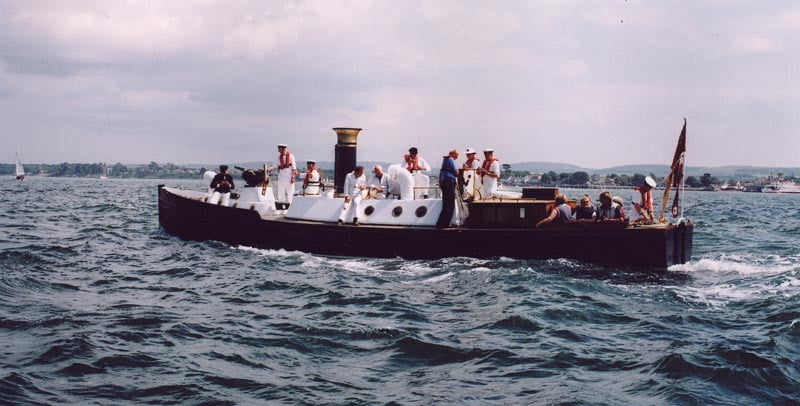As part of its WW1 centenary project, National Historic Ships UK launched a Veterans Appeal, with the aim of finding descendants of those who lived, worked, served or owned any of the craft on the National Register of Historic Vessels during the First World War.
National Historic Ships UK is a government funded, independent organisation giving objective advice to UK governments and local authorities, funding bodies and the historic ships sector on all matters relating to historic vessels in the UK. It maintains the National Register of Historic Vessels, the National Archive of Historic Vessels for those craft no longer surviving; and the UK Replica List and the Overseas Watch List.
With over 1,200 vessels on the National Register of Historic Vessels worldwide, National Historic Ships UK recently launched its WW1: Britain’s Surviving Vessels centenary project to tell the stories of more than 60 boats on the register that were involved in the First World War.
Celebrating our war heroes and their vessels, the Britain’s Surviving Vessels project wants to tell the story of all the different ships, how they were involved in WW1 and where they are today. A number of big and famous ships spring to mind when you think about the First World War at sea. However, the real history of the war at sea is a much richer story, with vessels that were used in a variety of activities, including requisitions by the Navy, the development of new technologies and transporting supplies to troops on the Western Front.
WW1 was a sea war, as well as one of horrific land campaigns. With this project, the main aims are to highlight the role of the smaller vessels and encourage members of the public to get in touch and tell their forgotten stories.
By finding the heroes from over 100 years ago, National Historic Ships UK wants to discover maritime descendants from the war and introduce them to the current vessel owners and arrange for them to visit the ship on which their ancestors served. This will give family members the pride and joy of finding out more about their ancestors, and how they contributed to Great Britain’s WW1 efforts.
These vessels include:
- SS Nomadic, a passenger tender for the Titanic that was pressed into service as an American troopship;
- HMS Caroline, the last surviving British warship that took part in the Battle of Jutland;
- The Stour barge John Constable that was scuttled for fear she would be used to transport German troops in the event of an invasion;
- The topsail schooner Result which was converted into a so-called ‘Q’ ship with concealed armament to lure U-boats into battle.
The WW1: Britain’s Surviving Vessels project was aided with a grant from the Heritage Lottery Fund in 2013 and tells the forgotten stories of more than 60 ships and boats of all types, shapes and sizes, ranging from humble barges to fishing boats and impressive fighting ships, all of which played a vital role during the First World War.
Find out more information via the dedicated WW1: Britain’s Surviving Vessels website, which tells the detailed stories of these vessels, along with images, documents and links to more information. It also gives lots of information on where to find the accompanying pop-up exhibition which is visiting sites around the UK during the centenary and can be booked for events or to accompany programmed displays.
For more information about WW1: Britain’s Surviving Vessels project, please visit: http://www.ww1britainssurvivingvessels.org.uk.
For more information about National Historic Ships UK, please visit: www.nationalhistoricships.org.uk.

